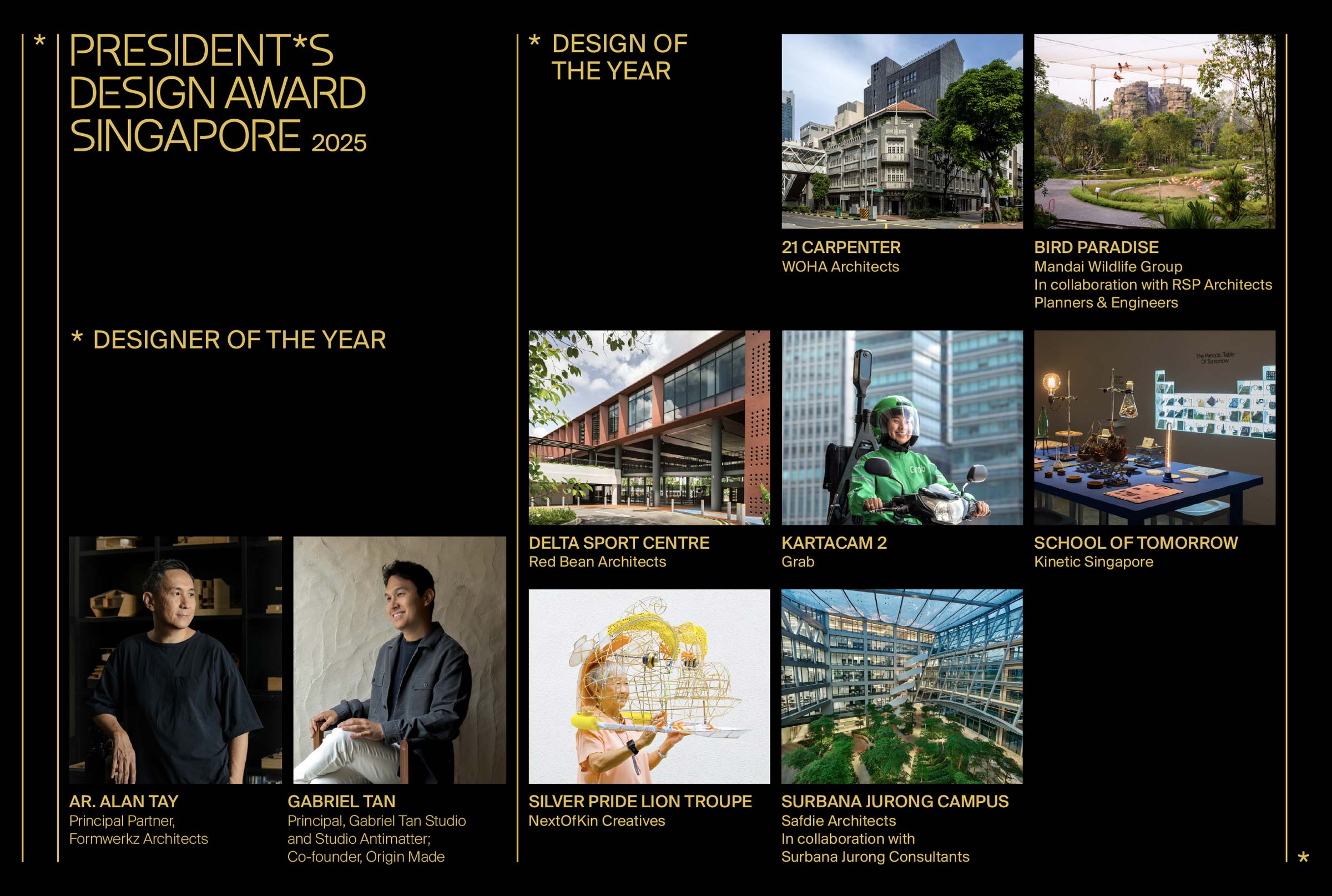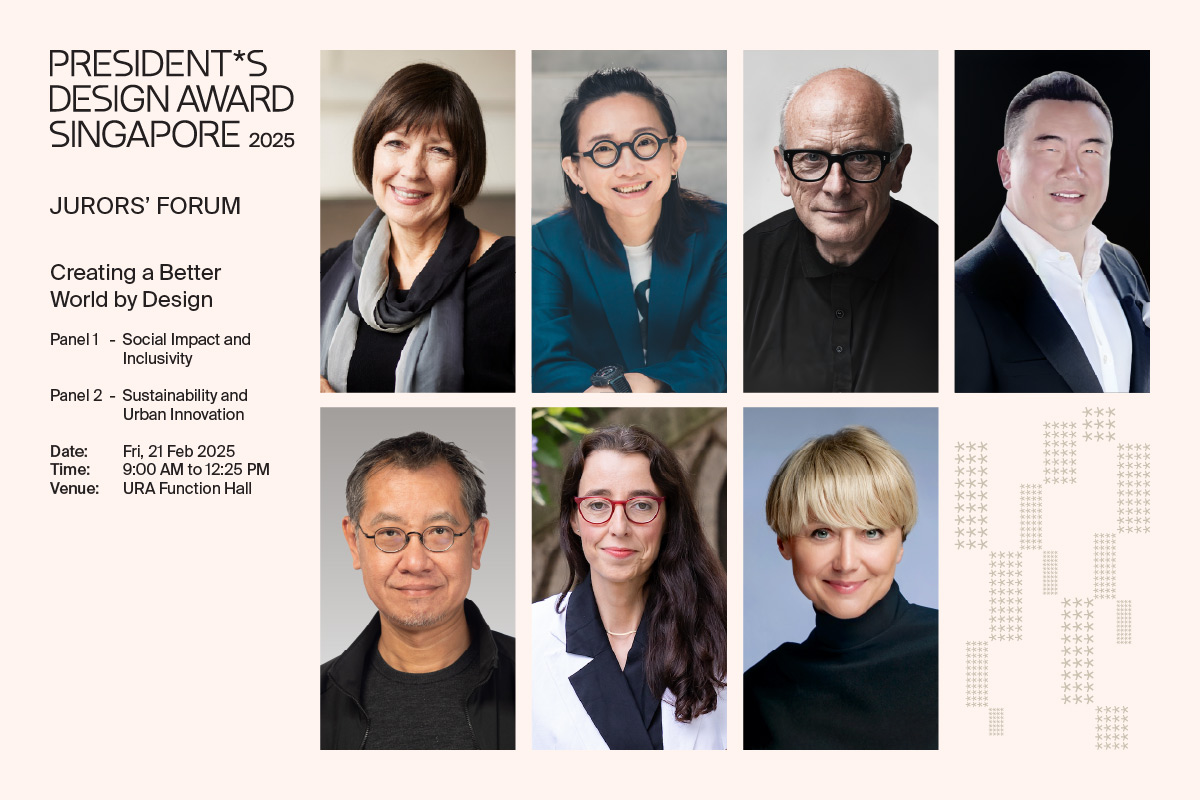[P*DA 2023 Jurors’ Forum Recap] Working Together to Design a Better World Designers must engage people, society and other disciplines more to make a greater impact, say jurors for the President*s Design Award (P*DA) 2023.
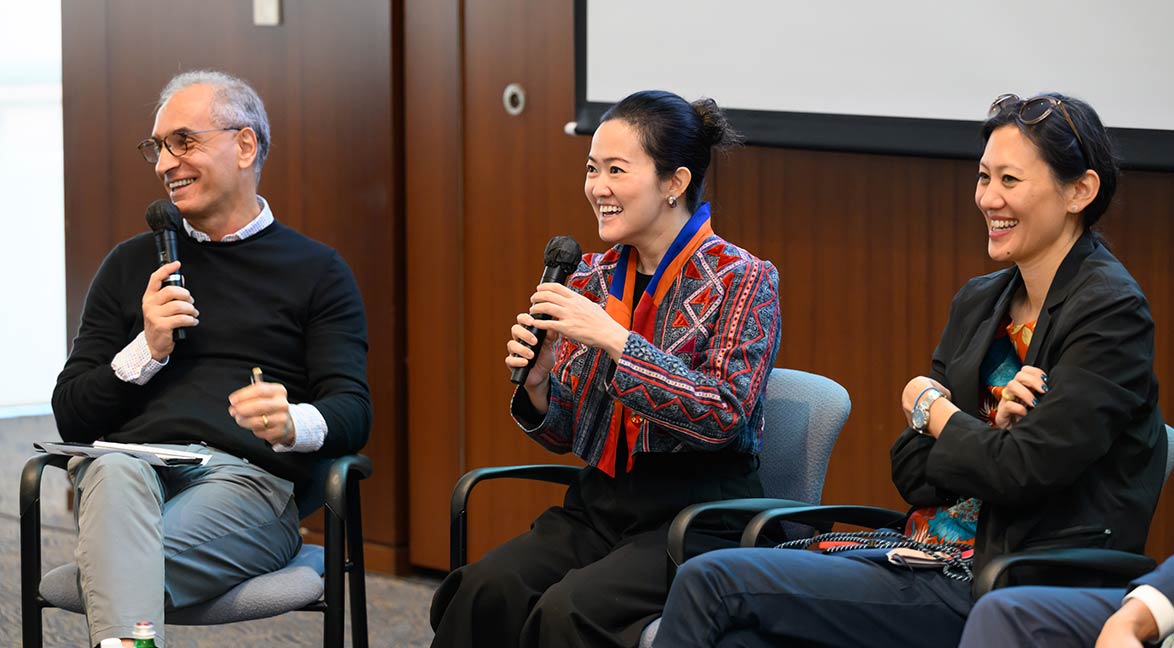
An automatic soap dispenser that only works for fair-skinned users? This is no dystopia, but a real-life example once found in the bathroom of a major tech office. The dispenser’s infrared sensor was calibrated to only recognise a particular range of skin tones, which inadvertently led to this “racist” design. It is a reminder that designers must be inclusive in their work, said Dr Ming Tan, the Founding Executive Director of Singapore-based non-profit Tech for Good Institute.
“In Singapore, we are a multicultural society and in our neighbourhood of Southeast Asia we are 655 million people with hundreds of ethnic groups who speak more than a thousand languages,” she said to a full house at the URA Function Hall on Friday 17 February during the President*s Design Award (P*DA) Jurors’ Forum 2023. “How might we improve quality of life but still find ways to respect and preserve different ways of life?”
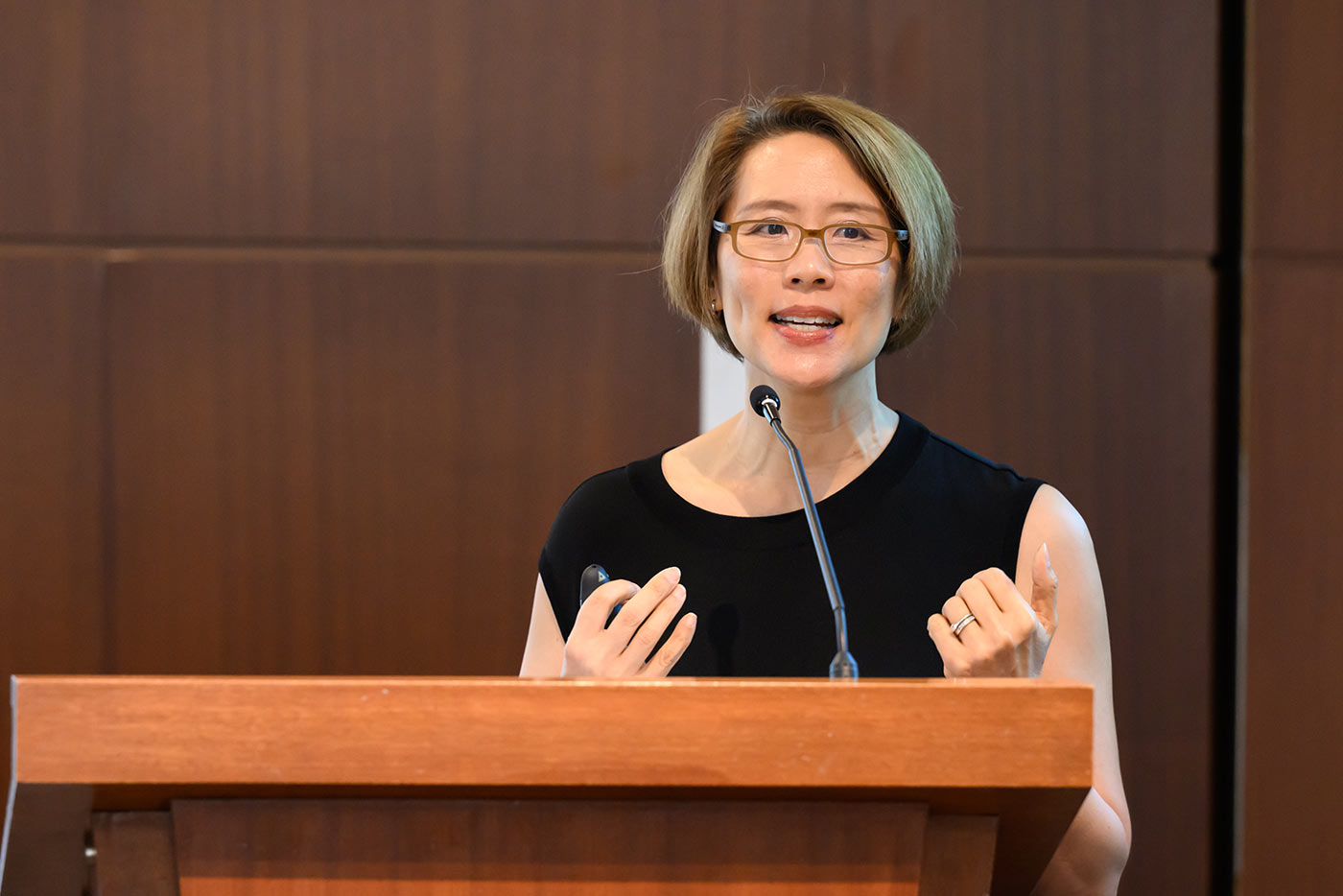
Dr Tan was sharing how to create a better world by design, along with a number of her fellow P*DA jurors. While they came from around the globe and work in different disciplines – ranging from architecture to landscape, branding and service design – a common theme was the need for designers to engage people more widely and deeply in order to achieve a greater and lasting impact.
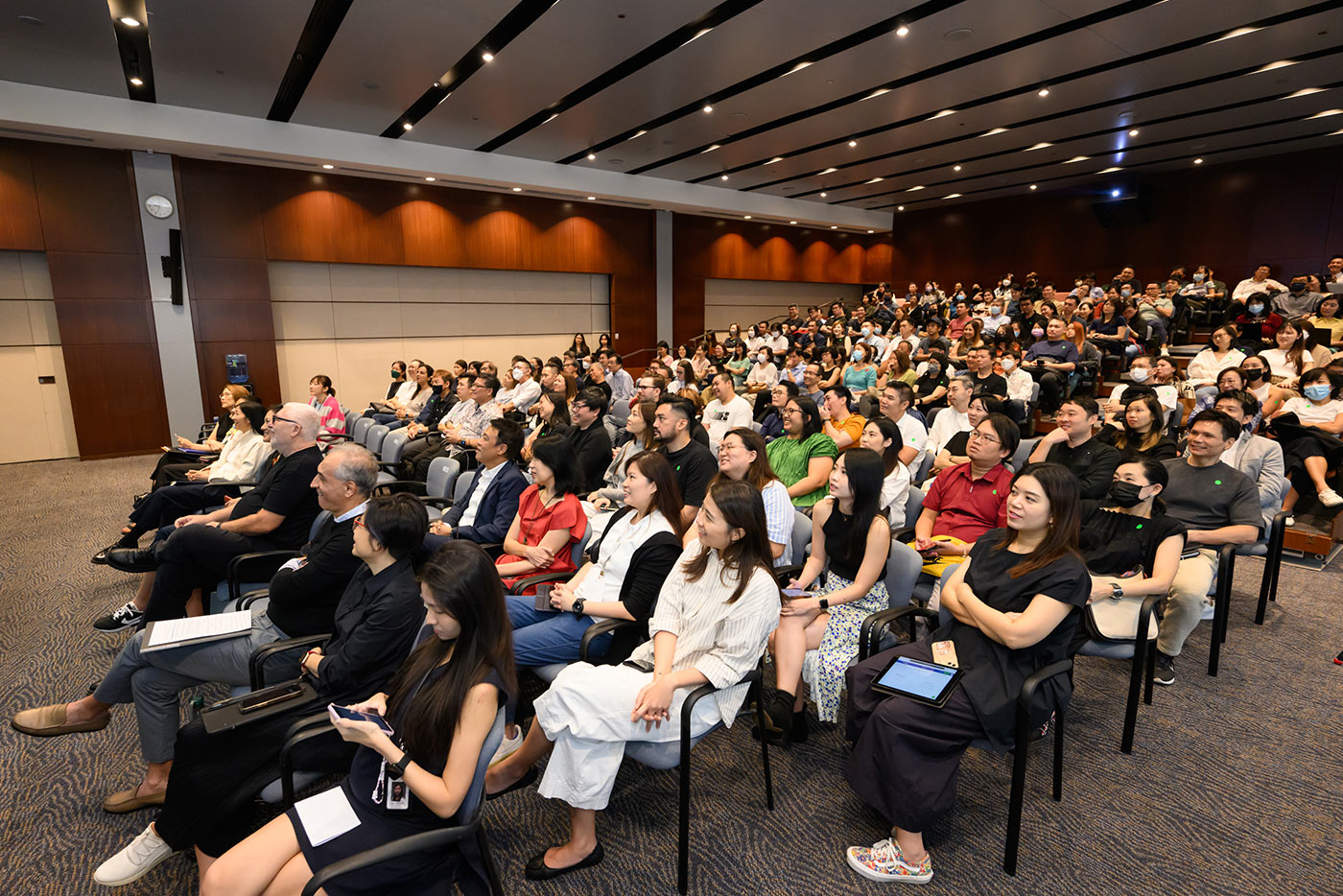
One reason is the growing scale and complexity of today’s challenges, such as sustainability and climate change. Architect Chan Soo Khian, Founding Principal and Design Director of Singapore-based SCDA Architects, noted that many of his colleagues are concerned and working to address such issues, but said there is a limit to what the profession can achieve alone.
Citing a statistic that less than one per cent of the profession is participating in sustainability conferences even though the built environment contributes a fifth of global carbon emissions, he urged the audience to step out more.
“These days I try to consciously talk to non-architects about climate change – such as chief sustainability officers of corporations and activists – just because I feel like what we know and what we are doing has such little impact,” he said.
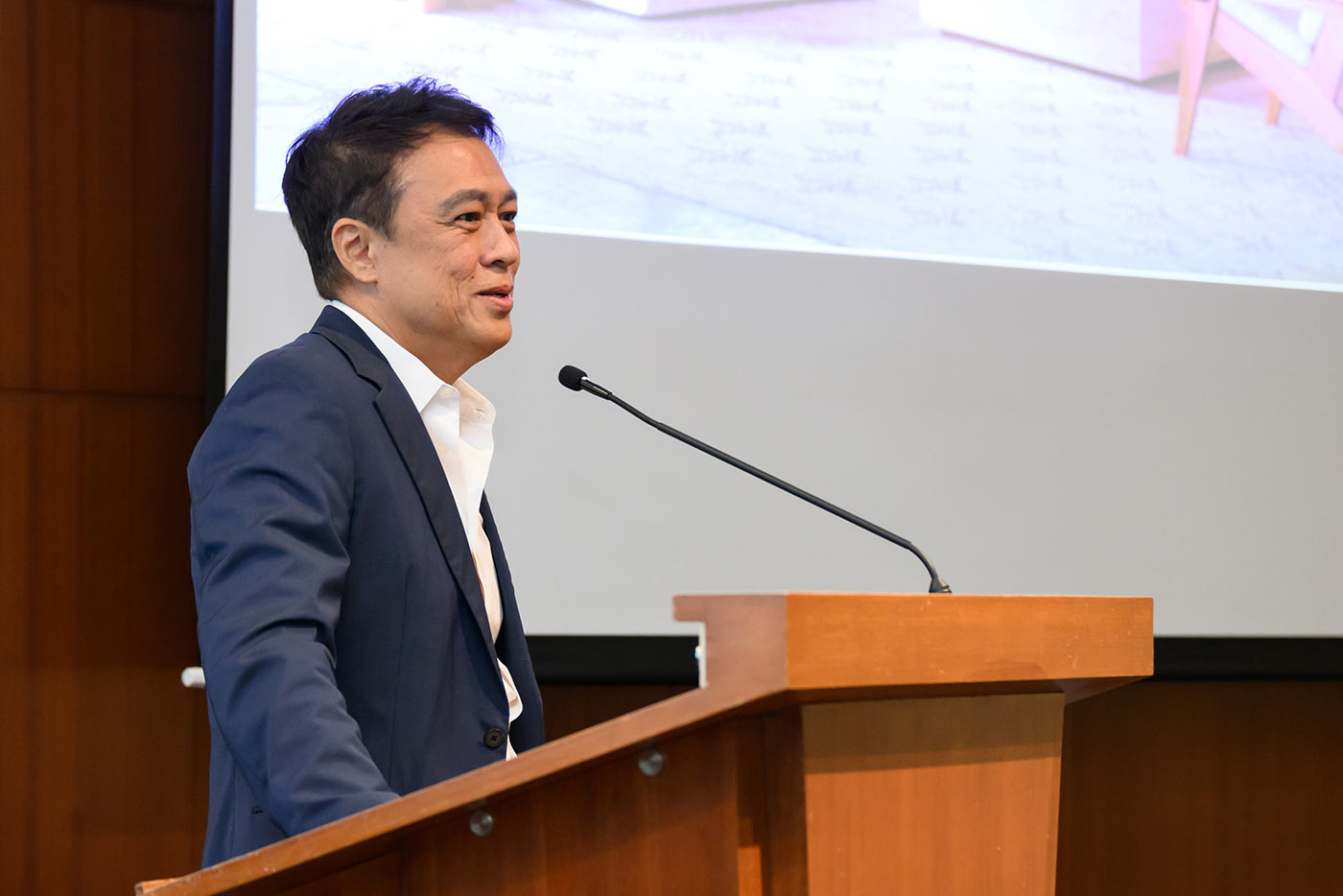
His wish to amplify the message of sustainable design was echoed by Thai landscape architect Kotchakorn Voraakhom who spoke at the United Nations Climate Change Conference in Glasgow (COP26) in 2021. To her surprise, she was one of the very few designers at this global meeting to tackle climate crisis.
“People kept asking for solutions, which landscape architects, architects and designers have, but there were very few of us there,” said the Founder and CEO of urban design firm LANDPROCESS.
In her projects, Voraakhom strives to bring people together. For instance, LANDPROCESS is working to break down what Voraakhom refers to as the “Bangkok China Wall” that runs alongside the Phadung Krung Kasem canal with a design that will soften and humanise the hard edges, making comfortable urban spaces for people.
In late 2021, LANDPROCESS completed the first phase of the Chong Nonsi Canal Park at a Sathorn intersection. The achievement of this greened and pedestrian-friendly zone required the design team to work across multiple government departments to clean up the polluted waterway and create an accessible waterfront, highlighting the need for everyone involved in such an ambitious project to break away from siloed thinking.
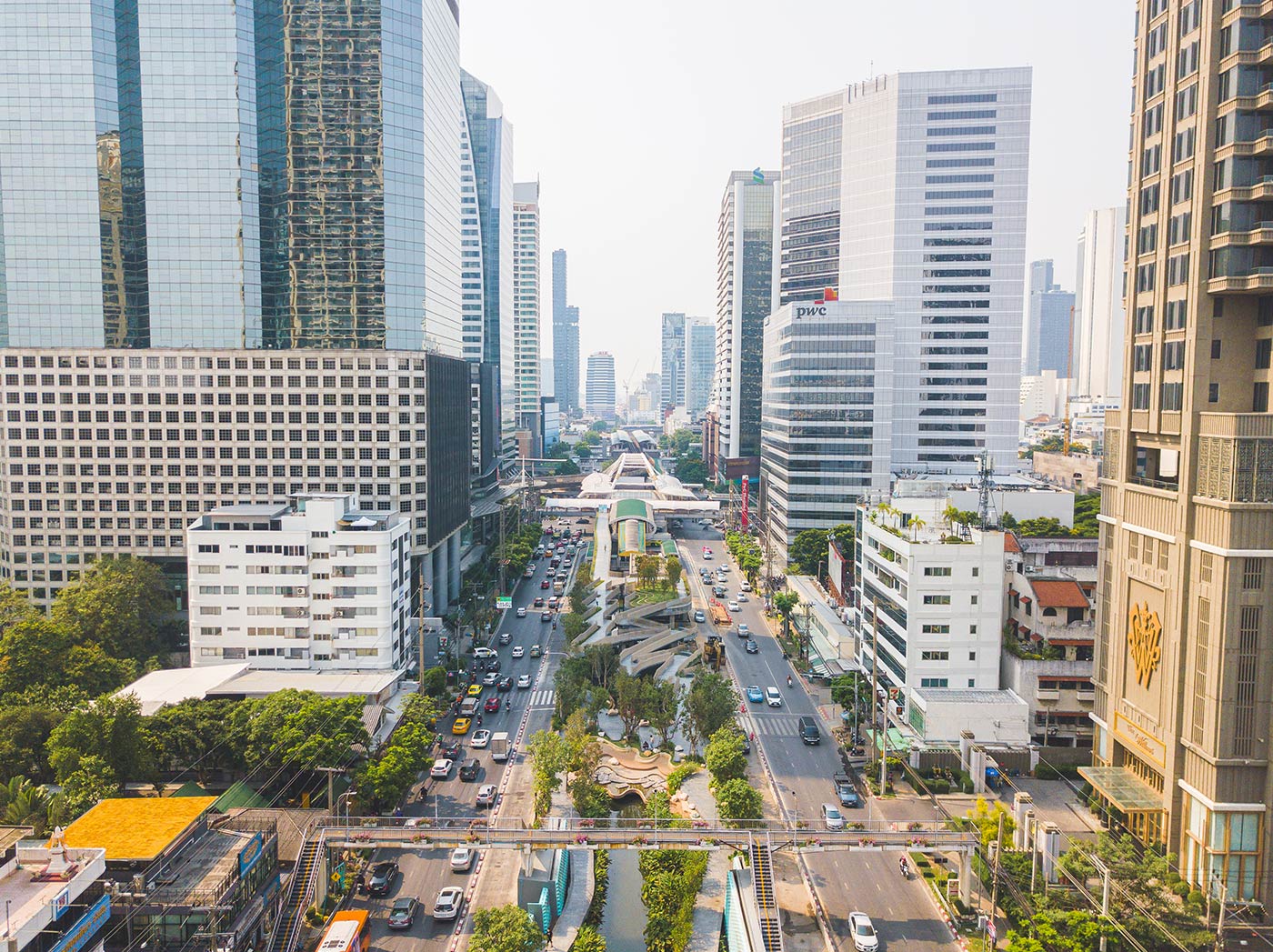
“It’s not about who we are – architects, urban designers, landscape architects, designer thinkers – but we have to hold each together strong enough to really have a presence and fight for a bigger statement,” she said.
Starting small and caring more
Beyond tearing down barriers, it is important to build bridges too. Architect Marisa Yiu shared how the non-profit initiative Design Trust Hong Kong, which she co-founded, has brought communities together by design. One example is building microparks in the highly built-up city. Each was realised by a multidisciplinary team who piloted designs with stakeholders such as residents who lived nearby.
“Bringing the community along from the beginning as an active live studio, we were able to test a lot of prototypes and use them as a way to engage the community and directly give us feedback,” she said.
Although the projects were small, they empowered ordinary citizens to get involved in shaping their city. It showcases how designers can “harness smallness to ignite bigger change,” said Yiu.
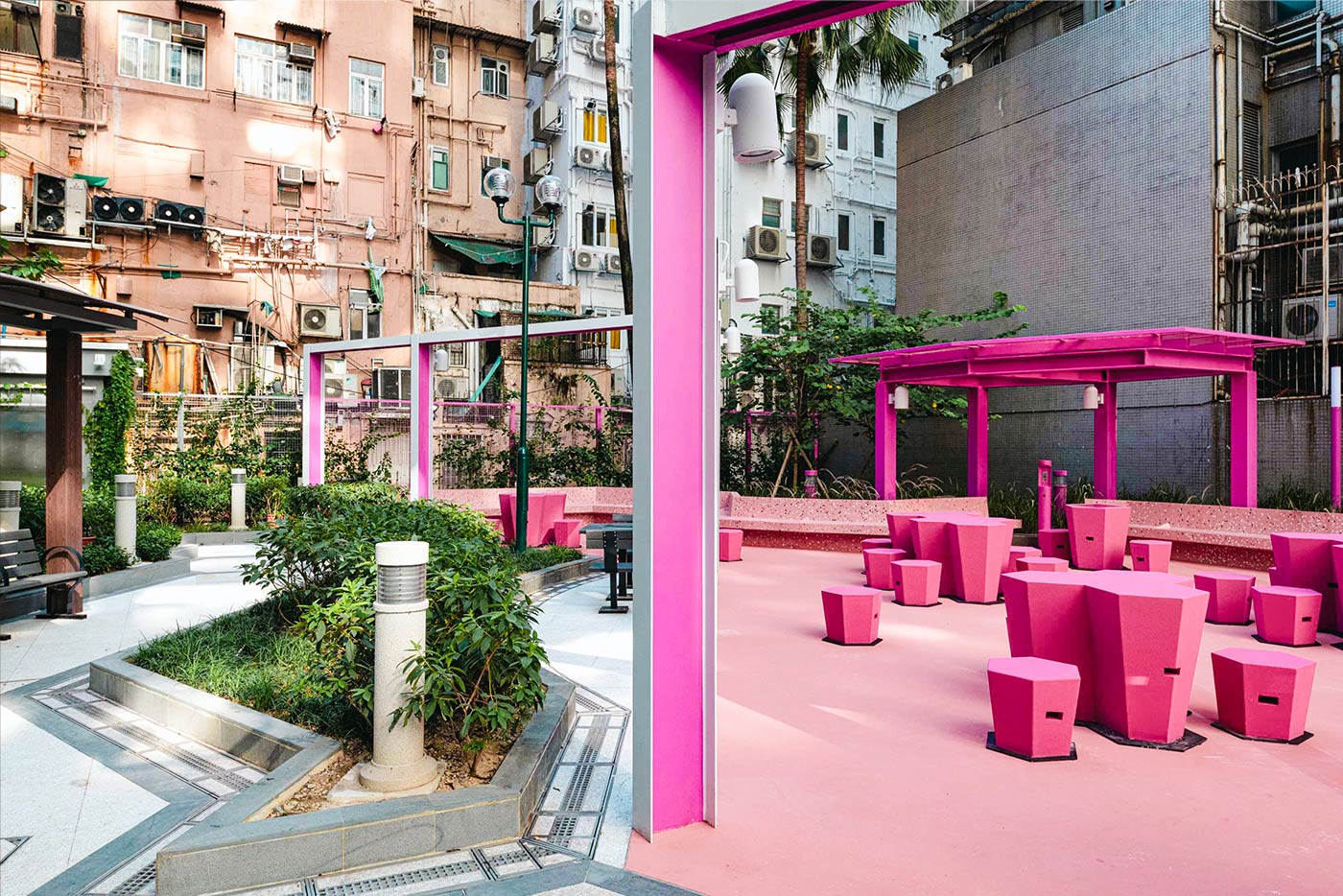
Tim Kobe of Singapore-based international design consultancy Eight Inc. also touched on the importance of nurturing human relationships by design. His firm has been investigating the future of work and has discovered that many employees are resigning from their jobs today because of a disconnect with the organisations they work for.
“Employees are not feeling engaged, they are not experiencing the things that will drive them to connect with their employers and work,” he said. “Ignoring human outcomes has led to this ‘Great Resignation’.”
Unless organisations transform their workplaces and cultures, they will find it increasingly difficult to not just retain their workforce but also attract new talents, he added.
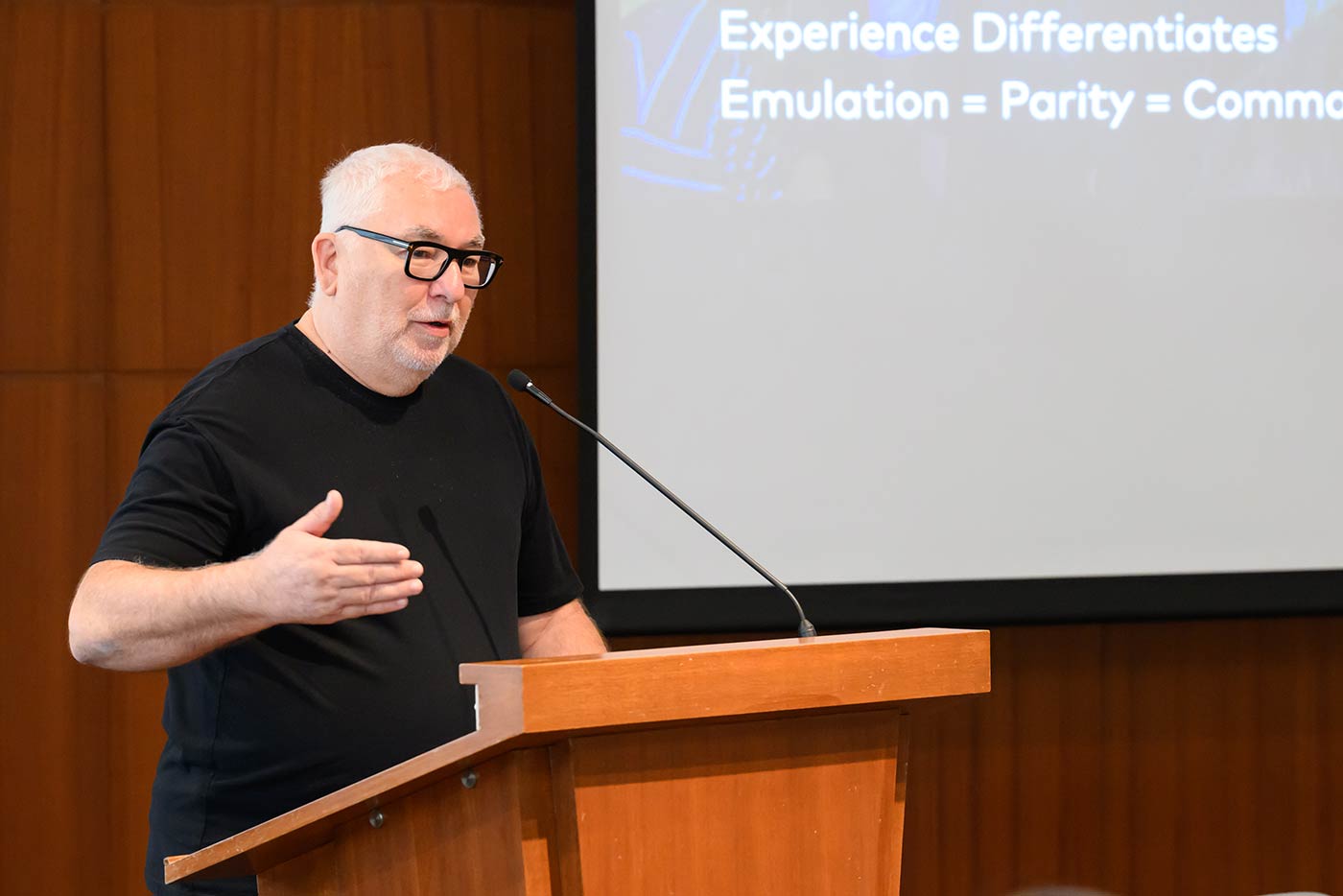
The definition of work in design is shifting too, according to designer Lekshmy Parameswaran. Over the past few years, she and her team at The Care Lab have helped co-create tools and services for the Oasis@Outram Day Hospice in Singapore, which is reimagining palliative care. When the project was completed, the client invited her team to stay on to coach the staff and maintain their designs.
“We discovered a new role that we designers need to play: as gardeners to nurture and to walk with people,” Parameswaran said. “We are no longer just trying to solve problems, but caring about problems. And when you care about problems, it means you go deeper and stay longer in order to see the impact.”
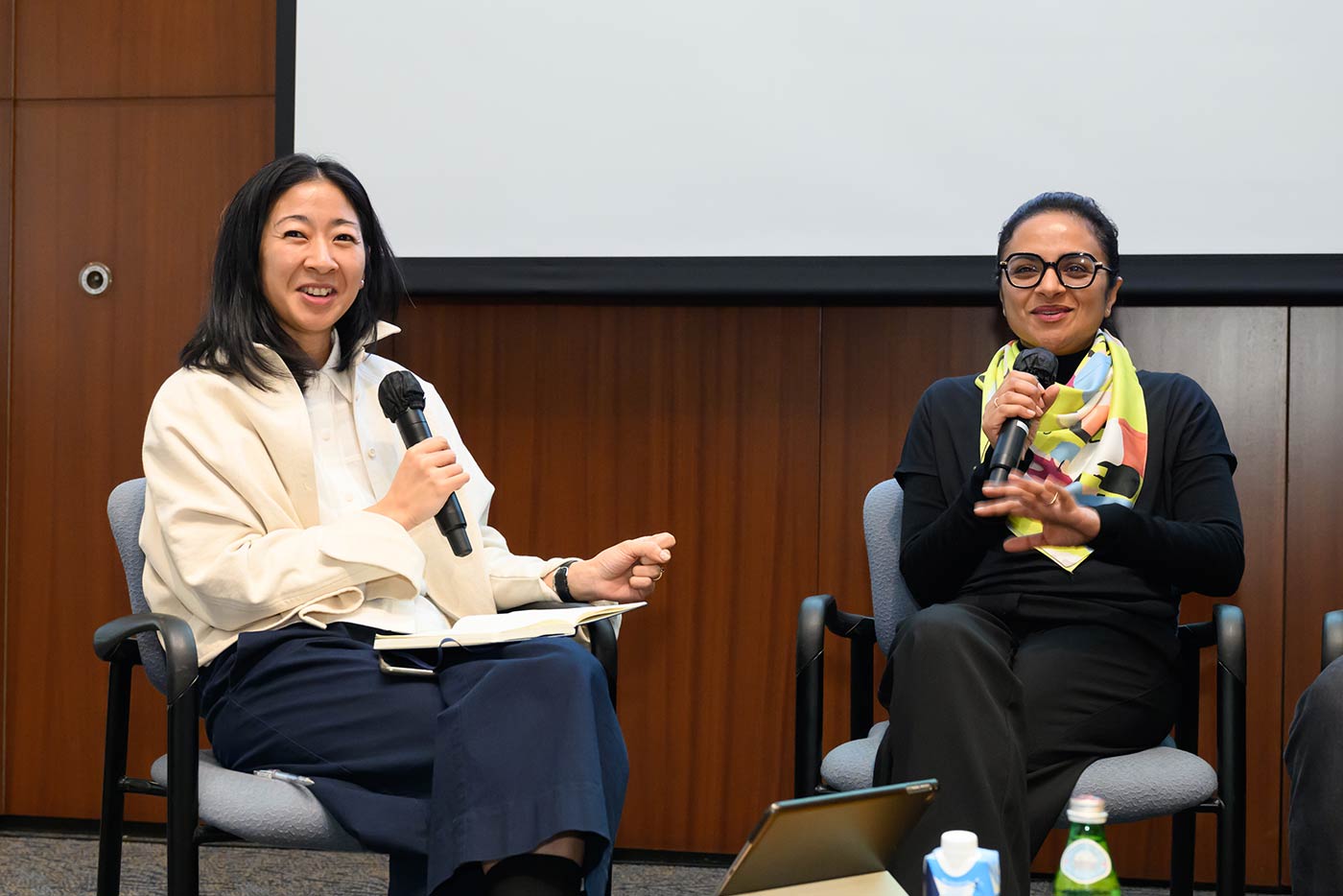
Did you miss the P*DA Jurors’ Forum 2023? See the highlights in our event video.
The recipients of the President*s Design Award 2023 will be announced in July. Catch the P*DA 2023 exhibition around Singapore from mid-July onwards. Keep up to date by joining the P*DA mailing list.
Article by Justin Zhuang. Photographs of P*DA Jurors’ Forum 2023 by Gan Jia Jun.


